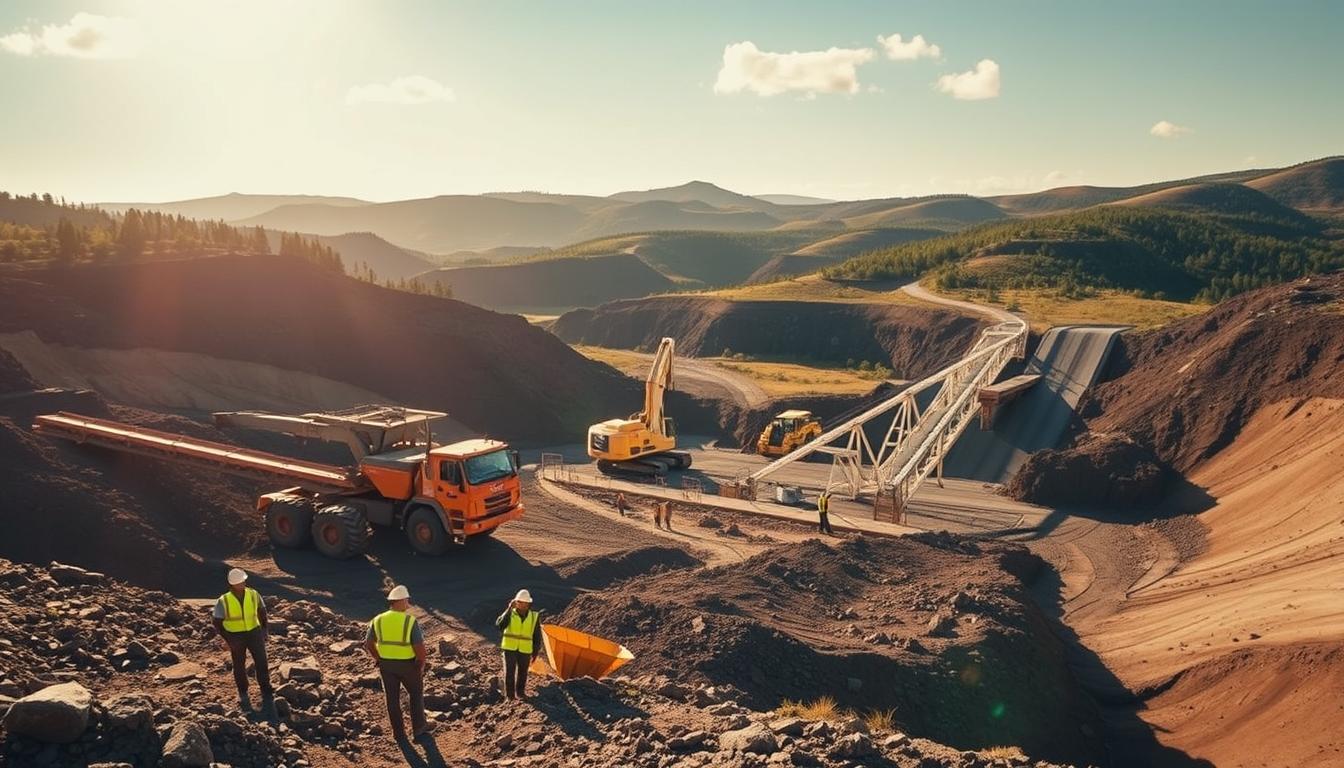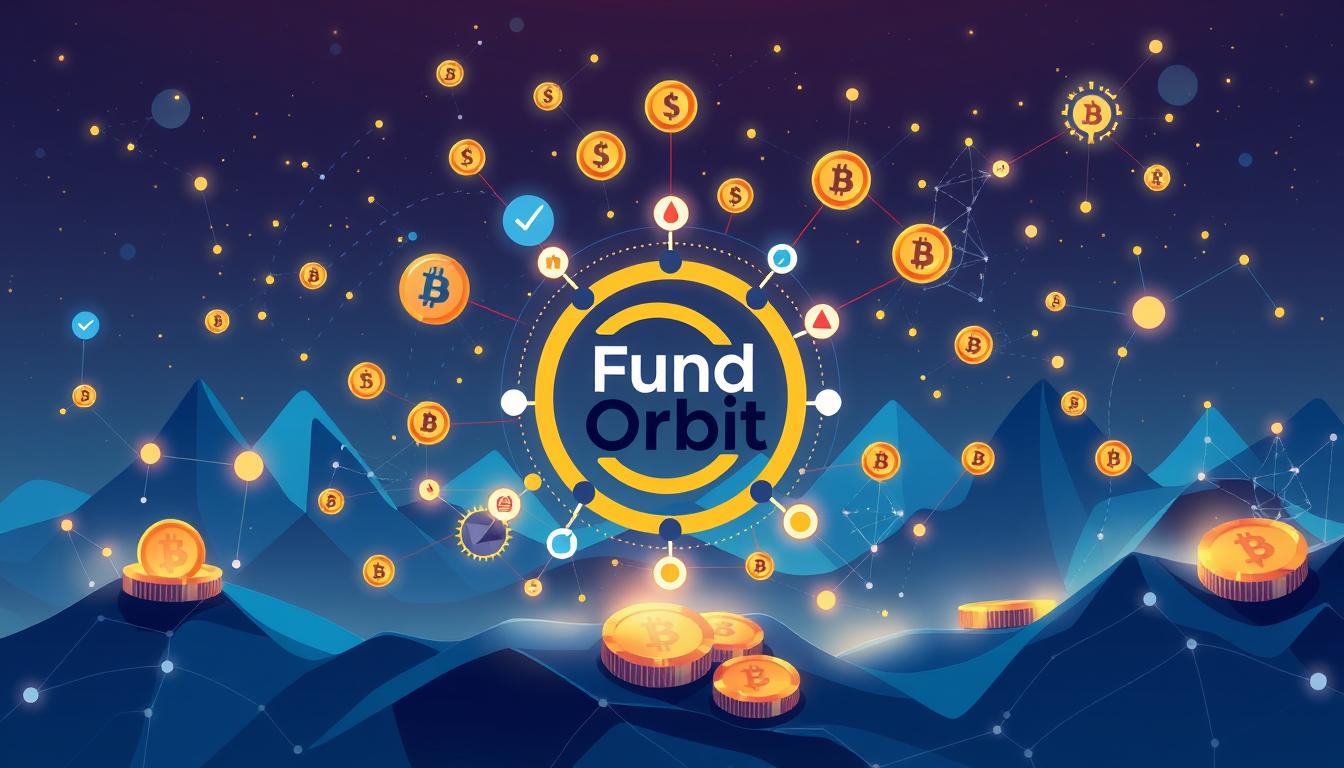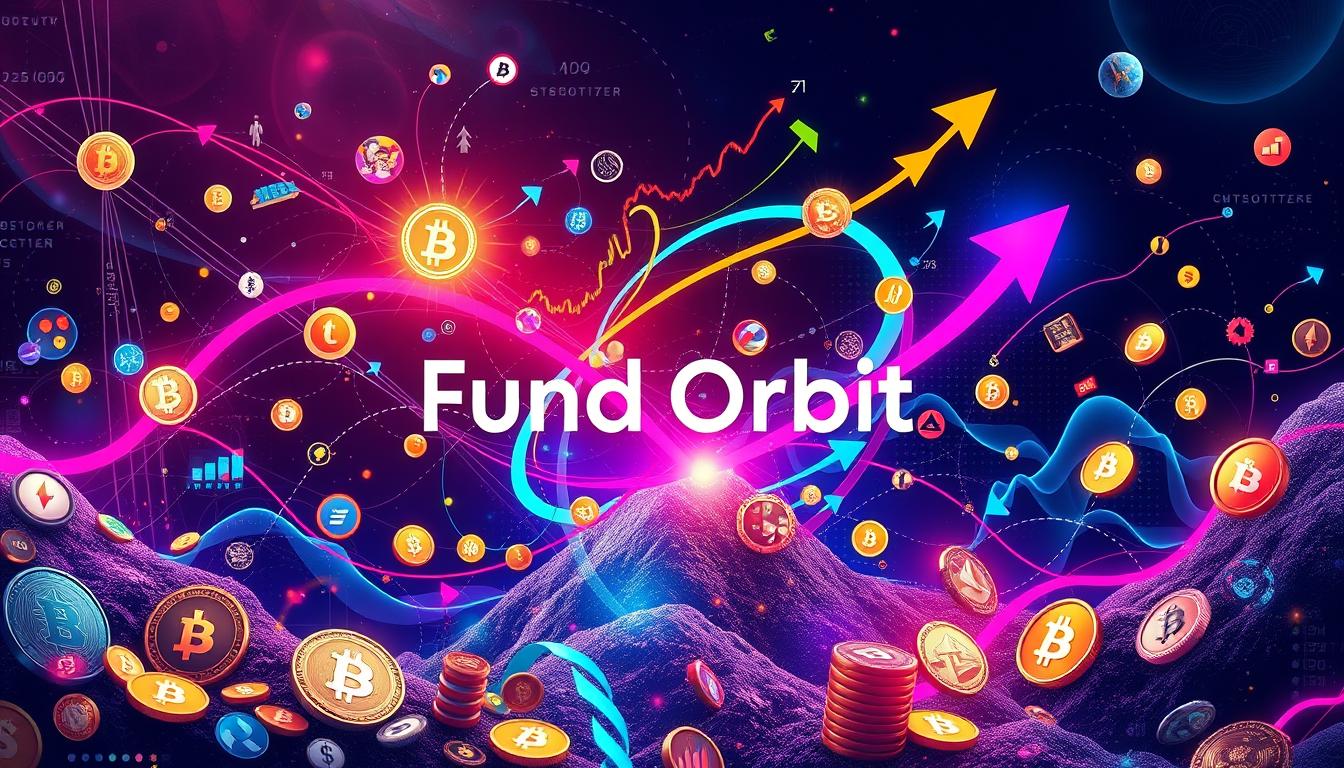The mining industry is at a critical juncture, facing increasing pressure to adopt more responsible methods while meeting the growing global demand for minerals and metals.
As we move towards a more environmentally conscious future, the need for sustainable mining practices has become more pressing. At CoWrit Technologies Inc, we recognize the importance of transforming the mining sector to minimize its impact on the environment.
By embracing innovative solutions and strategies, mining companies can not only reduce their ecological footprint but also enhance their operations and contribute to a more sustainable future.
Key Takeaways
- The mining industry must adopt more sustainable practices to meet growing demand.
- Sustainable mining represents a shift towards responsible resource management.
- Revolutionizing mining practices is both an environmental and business necessity.
- The triple bottom line approach is key to modern sustainable mining.
- Mining operations can implement sustainable practices in various areas.
The Critical Need for Sustainable Mining Practices
The need for sustainable mining practices has never been more pressing, given the environmental and social challenges associated with traditional mining methods. As we move forward, it’s crucial to address these challenges head-on.
Environmental Challenges
Traditional mining practices have significant environmental impacts, including deforestation, water pollution, and soil erosion. These activities not only harm local ecosystems but also contribute to global environmental issues such as climate change. The mining sector must adopt more sustainable practices to mitigate these effects. Some of the key environmental concerns include:
- Deforestation and habitat destruction
- Water pollution from chemical runoff
- Soil erosion and loss of fertile land
Economic and Social Implications
Mining activities can provide economic benefits but also create social challenges. Working closely with local communities to understand their needs and ensuring that mining activities provide economic and social benefits is crucial. Community development programs and fair compensation can build trust and support for mining projects. The implications of unsustainable mining practices include:
- Boom-and-bust economic cycles in mining-dependent communities
- Social disruption due to conflicts over land use and resources
- Reputational risks for mining companies
Understanding Sustainable Mining Practices
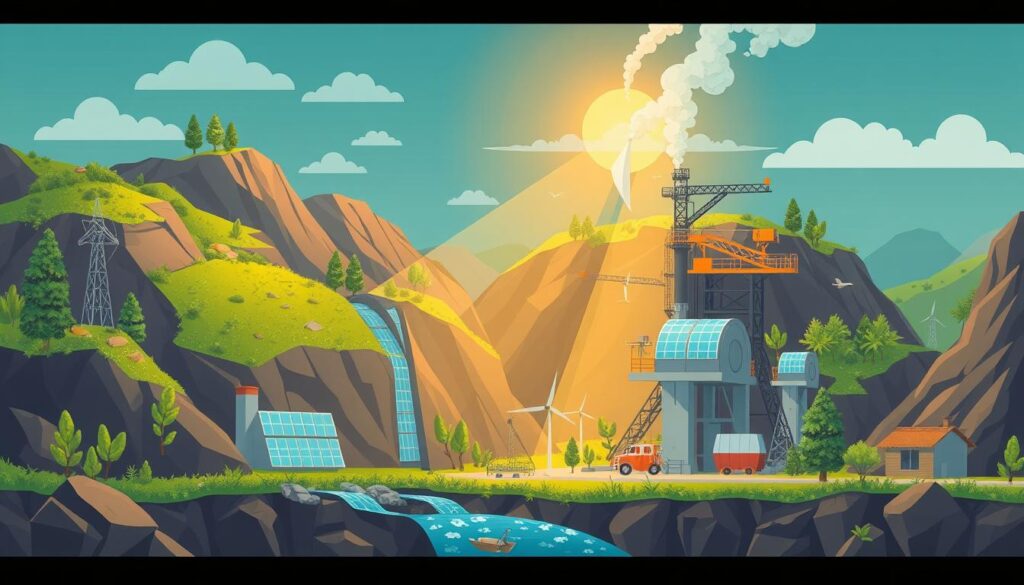
The shift towards sustainable mining practices is revolutionizing the mining industry’s environmental, social, and economic impact. As we explore this topic, we’ll delve into the core principles, approaches, and global standards that are shaping the future of mining.
Definition and Core Principles
Sustainable mining practices involve a holistic approach that balances economic, environmental, and social considerations. At its core, sustainable mining aims to minimize the negative impacts of mining while maximizing its benefits to local communities and the environment.
The Triple Bottom Line Approach
The Triple Bottom Line approach is a key framework for sustainable mining, focusing on economic, environmental, and social performance. This approach ensures that mining companies consider the broader implications of their operations and strive for long-term sustainability.
Global Standards and Frameworks
Several global standards and frameworks guide sustainable mining practices, including the Towards Sustainable Mining (TSM) initiative, the International Council on Mining and Metals (ICMM) principles, and the Initiative for Responsible Mining Assurance (IRMA). These frameworks establish performance expectations and provide mechanisms for verification and reporting, helping mining companies develop comprehensive sustainability programs.
Implementing Renewable Energy Solutions
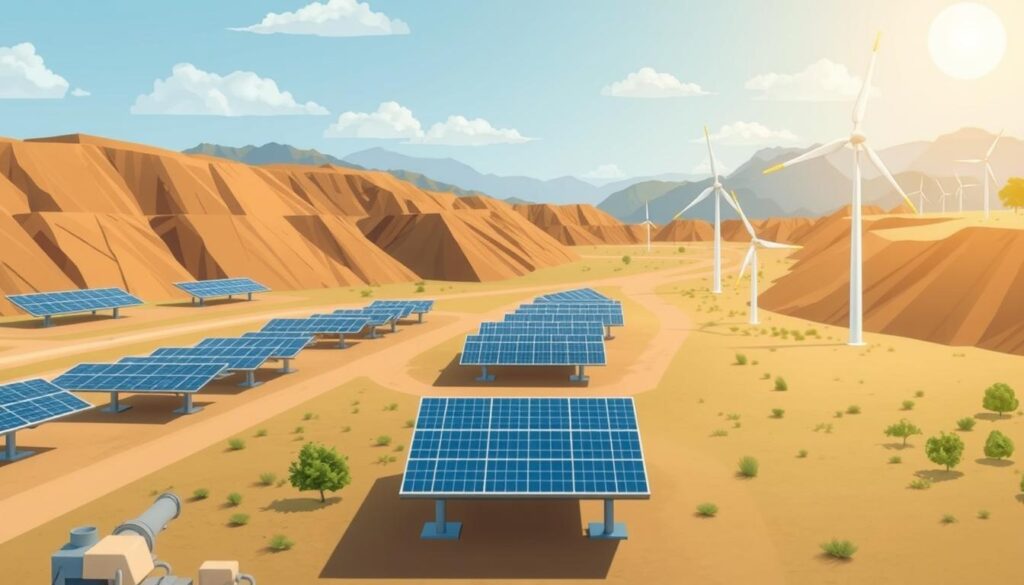
The shift towards renewable energy in mining is not just a trend, but a necessity for reducing emissions and improving efficiency. As the industry continues to evolve, integrating renewable energy solutions is becoming a crucial step towards sustainability.
Solar and Wind Power Integration
Mining companies are increasingly adopting solar and wind power to reduce their reliance on fossil fuels. This transition not only decreases greenhouse gas emissions but also helps in lowering operational costs over time. Innovative technologies are being implemented to ensure a stable and efficient energy supply.
Reducing Carbon Footprint Through Energy Alternatives
By adopting low-emission technologies and practices, such as electric vehicles and equipment, the mining sector significantly reduces its carbon footprint. This approach has a positive impact on the environment and aligns with global climate goals, preparing mining companies for future carbon regulation and pricing.
Water Management and Conservation Strategies
Effective water management is crucial for the future of sustainable mining operations. As the industry continues to evolve, it’s becoming increasingly clear that water conservation strategies are essential for reducing environmental impact and improving operational efficiency.
Closed-Loop Water Systems
One of the key approaches to water management in mining is the implementation of closed-loop water systems. These systems allow for the reuse and recycling of water, minimizing the need for fresh water intake and reducing the amount of wastewater generated. By adopting closed-loop systems, mining operations can significantly decrease their water footprint and mitigate the risk of water pollution.
Advanced Filtration and Treatment Technologies
Advanced filtration and treatment technologies play a vital role in water management for mining operations. Techniques such as membrane filtration, advanced oxidation processes, and biological treatment systems are being adopted to remove contaminants specific to mining, including heavy metals and suspended solids. For instance, liquid membrane emulsion technology can extract usable metals from highly toxic or acidic wastewater, even dealing with dilute solutions.
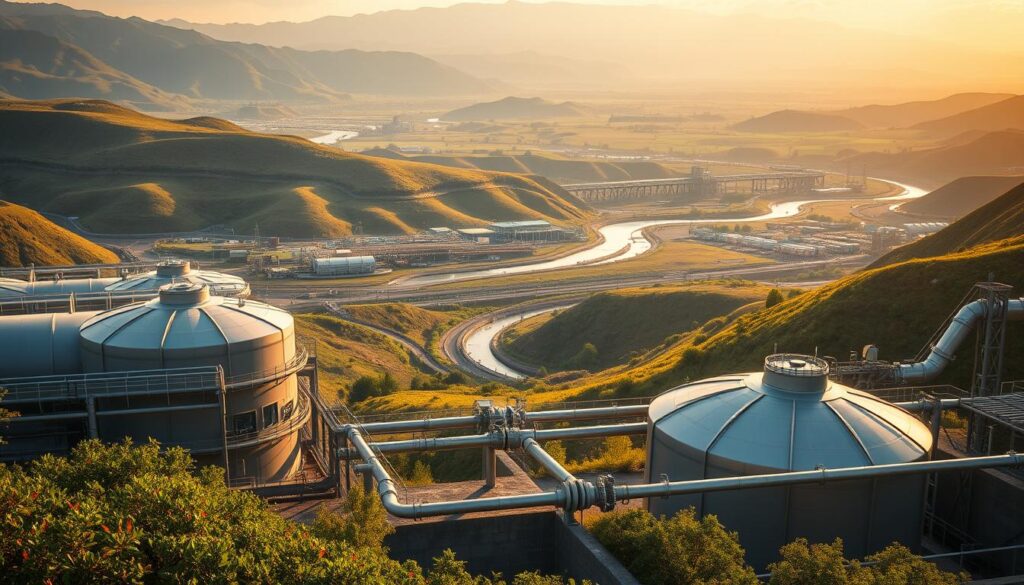
| Technology | Application | Benefits |
|---|---|---|
| Membrane Filtration | Removal of heavy metals and suspended solids | Improved water quality, reduced waste |
| Advanced Oxidation Processes | Degradation of organic pollutants | Enhanced water treatment efficiency |
| Biological Treatment Systems | Removal of contaminants through biological processes | Cost-effective and sustainable solution |
As the mining industry continues to adopt these water management techniques, we can expect to see significant improvements in water conservation and reduced environmental impact.
Engaging Communities and Building Social License
As we move towards a more sustainable future, engaging communities and building social license has become a critical component of mining operations. This involves not just complying with regulations but also ensuring that the local community benefits from the mining activities.
Transparent Communication with Stakeholders
Transparent communication is key to building trust with stakeholders. Mining companies must be open about their operations, impacts, and plans for mitigation. This can be achieved through regular updates, public meetings, and clear reporting mechanisms. By doing so, companies can foster a sense of inclusivity and cooperation.
Creating Shared Value with Local Communities
Creating shared value involves initiatives that benefit both the mining company and the local community. This can include investing in local infrastructure, providing training and employment opportunities, and supporting local businesses. Such initiatives help in building a positive relationship with the community.
Supporting Sustainable Development Goals
The mining industry can significantly contribute to the United Nations’ Sustainable Development Goals (SDGs), particularly those related to clean energy, responsible consumption, and economic development. By aligning their sustainability strategies with the SDGs, mining companies can maximize their positive impact. Some key areas of focus include:
- Aligning sustainability strategies with the SDGs
- Setting specific targets and measuring progress against SDG-related indicators
- Forming partnerships to accelerate progress toward the SDGs
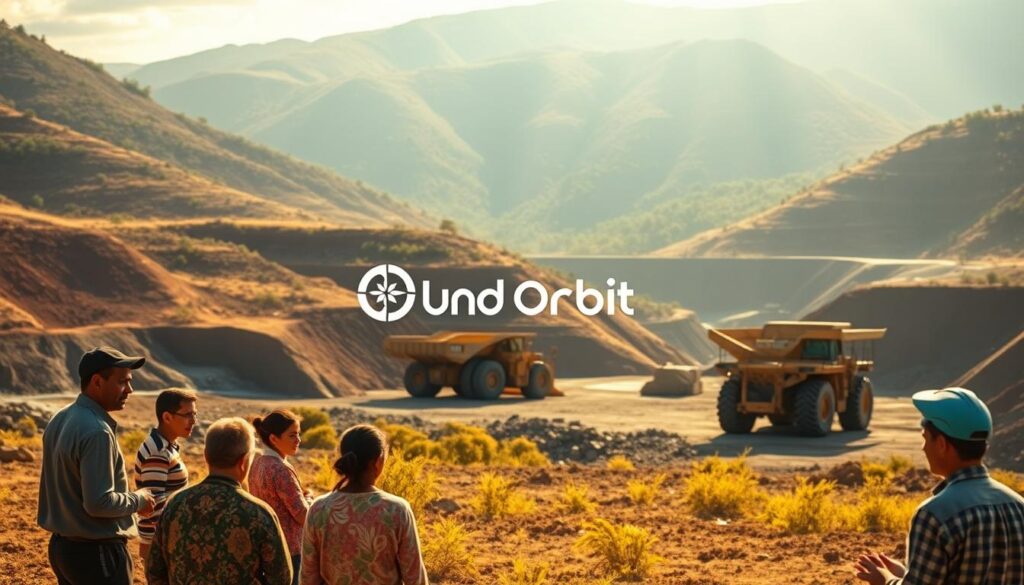
Emerging Technologies Transforming Mining Operations
Emerging technologies are reshaping the mining landscape, offering unprecedented opportunities for efficiency and sustainability. As we explore these innovations, it becomes clear that the future of mining is not just about extracting minerals, but about doing so in a way that minimizes environmental impact.
Automation and Remote Monitoring Systems
Automation and remote monitoring systems are revolutionizing mining by enhancing operational efficiency and reducing the need for human intervention in hazardous environments. These technologies enable real-time monitoring and control, improving safety and productivity.
AI and Data Analytics for Efficiency
The integration of AI and data analytics is transforming mining operations by optimizing processes and predicting potential issues before they occur. This leads to improved efficiency and reduced downtime.
Innovative Extraction and Processing Methods
Innovative extraction methods such as in-situ recovery, biomining, and precision blasting techniques are reducing the environmental footprint of mining. Advances in mineral processing, including high-pressure grinding rolls and coarse particle flotation, are improving recovery rates while reducing energy and water consumption.
These technologies are enabling the economic recovery of lower-grade ores and previously unrecoverable minerals, extending resource life and reducing waste. As the industry continues to evolve, we can expect to see further innovations that enhance sustainability and efficiency.
Conclusion: Building a Sustainable Future for Mining
Embracing sustainable mining practices is essential for the long-term viability of the mining sector. By integrating these practices, the industry can significantly reduce its environmental impact while fostering social and economic benefits. The shift towards sustainability not only ensures compliance with increasing regulations but also builds a resilient industry capable of thriving in a resource-constrained world.
We believe that sustainable mining is both an ethical choice and a business imperative, enhancing long-term viability, reducing operational risks, and securing social license to operate. Collaboration among mining companies, governments, communities, and other stakeholders is crucial in accelerating the adoption of sustainable practices globally. For support in developing and communicating your sustainable mining initiatives, consider reaching out to CoWrit Technologies Inc, specialists in creating comprehensive content strategies. Contact us via WhatsApp Call & Chat: +44-7822010953 to learn more about our services.
